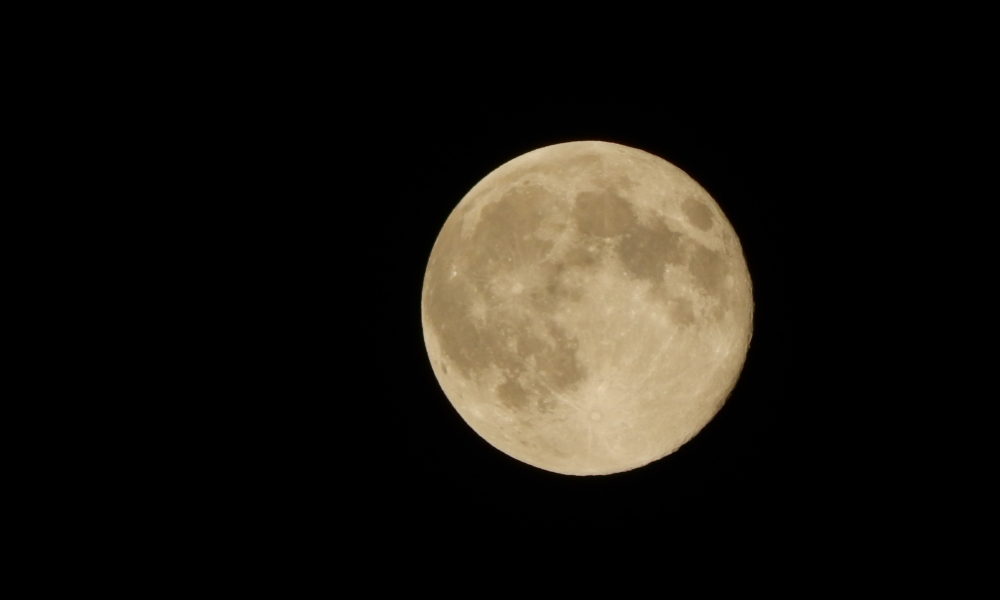After climbing 12 flights of stairs, attendees walk out onto the roof of the Hall of Science.
Volunteers guide them with their phone flashlights to the viewing area where two 11-inch telescopes are being calibrated to view planets and constellations.
Every Tuesday night, weather permitting, the department of physics and astronomy hosts its Nights at the Observatory, where students and community members are welcomed to see the night sky from a whole new perspective.
Jessica Asbell, a lecturer in the department of physics and astronomy, has been helping organize the observatory night since she was a student at Long Beach State studying for her masters in astrophysics.
Asbell now runs the observatory nights, along with assistance from graduate students, not much unlike herself years ago.
“When I was here as a student, there was another faculty member who ran observing nights occasionally and he needed help with that,” Asbell said. “I got accustomed to the telescopes, accustomed to seeing the crowds and talking about astronomy and when I got hired here, I wanted to make it a regular program.”
As viewers line up to view the wonders the telescope becomes trained on, Asbell recites facts and information about each constellation, planet or cosmos being viewed.
She then leads the constellation tour where she and her assistants, including Sylvia Chow who is pursuing a master’s in physics, point out the visible constellations.
Andreas Bill, chair of the physics department, said that the event is meant to show the community that science can be enjoyable.
“I think most people underestimate the ability to understand science and reason to enjoy science,” Bill said. “It’s a way to approach science that is a little bit different than just sitting in the classroom.”
The program began years before Bill became the department chair, but he said its contributions to the public’s education has inspired them to continue it.
“We decided as the department that we have something very regular,” Bill said. “This is a good way to introduce people to science to get fascinated about what they see.”
The department has a total of six telescopes, two of which are brand new, 11-inch scopes, which refers to the diameter of the glass inside which allows the viewers to see planets millions of miles away.
Four of the night-time scopes are motorized, which means the user can put in coordinates of certain planets or constellations and the telescope will position itself for optimal viewing. The other two are manual viewing telescopes which allow viewers to point anywhere in the sky and see what they find.
The department also has several solar thermal telescopes that have specialized glass to filter out UV rays so viewers can look at the surface of the sun safely.
According to Bill, each telescope costs approximately $3,000. A mixture of state funds and private donations allow the department to buy the required tools to keep the event going.
The telescopes are stored in a temperature-controlled room and are taken upstairs by faculty for people to use. Bill said that the department is now hoping to invest in a protective roof that will house observation nights and the telescopes to help reduce the physical changes of the equipment due to the temperature change.
Most who attend the observatory nights are students currently studying physics or astronomy, or those who are taking a course for a general education requirement.
“Astronomy labs are a rare opportunity for you to see the stars in the sky rather than in class,” Chow said.
The event provides a wide range of experiences. For some, it gives them a first-time look at things they’d only dreamed of seeing. Bill said that in all his years in the field, he’d never seen the rings of Saturn until he was on top of the HSCI.
For others, like Chow, the social aspect is more fulfilling than the actual stargazing.
“I can go see the stars myself anywhere,” Chow said. “But finding people that are excited to see the planets and stars like me, that’s what I like about it.”
Asbell said that as science literacy and interest in science decreases, events like this one become even more important.
“I think everyone almost universally is curious about where you come from and where you sit within the cosmos and what’s going to happen to the cosmos as they evolve,” Asbell said. “There’s a human need to answer those questions and astronomy is a method of doing that or a pathway to doing that.”




